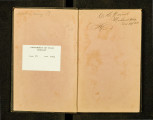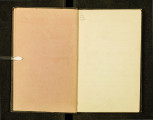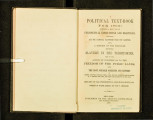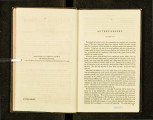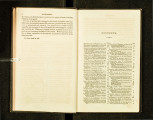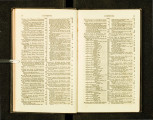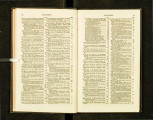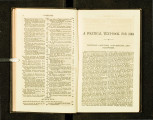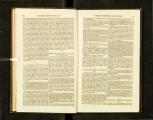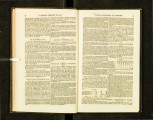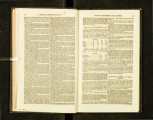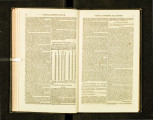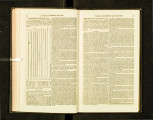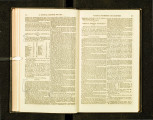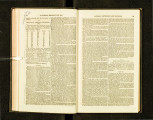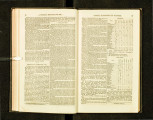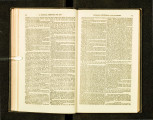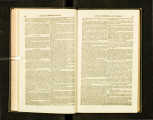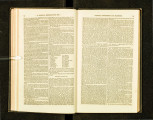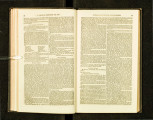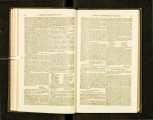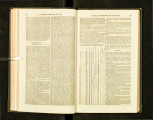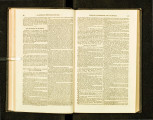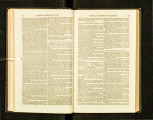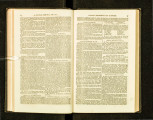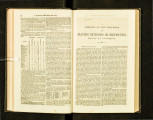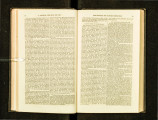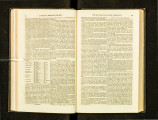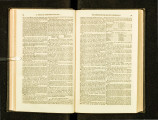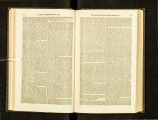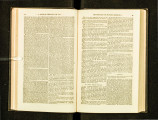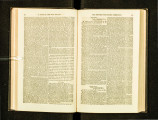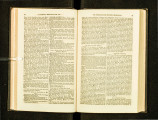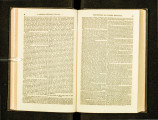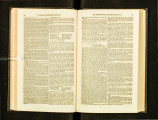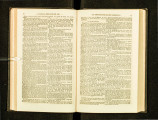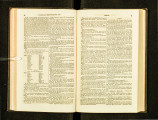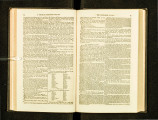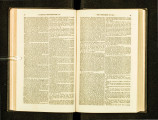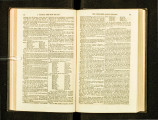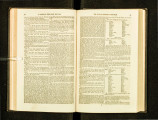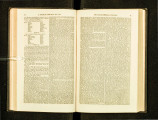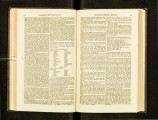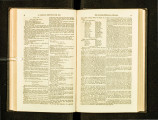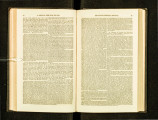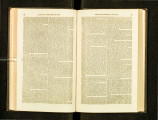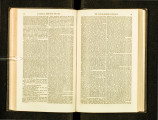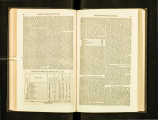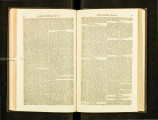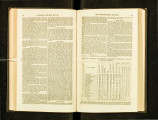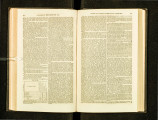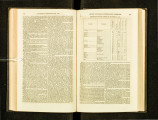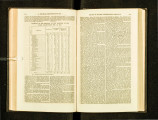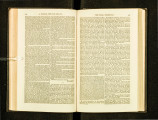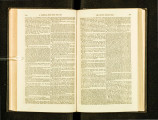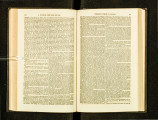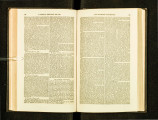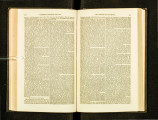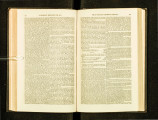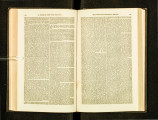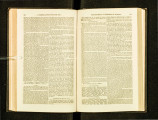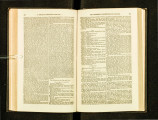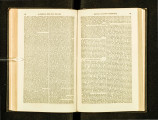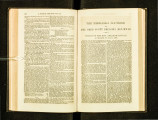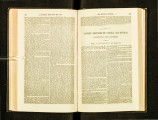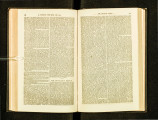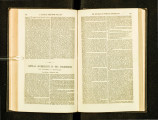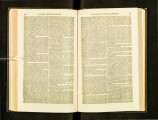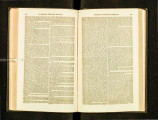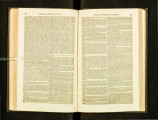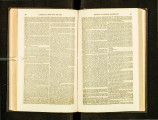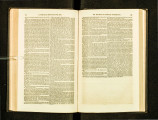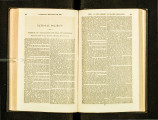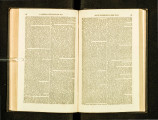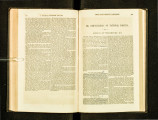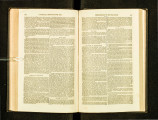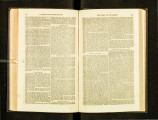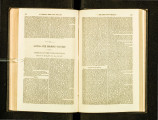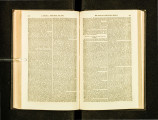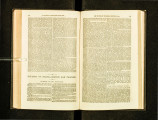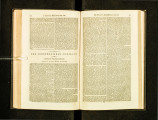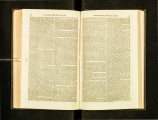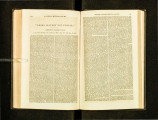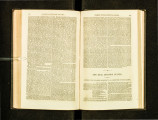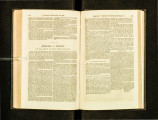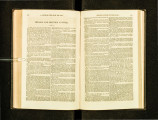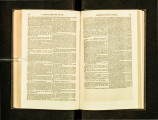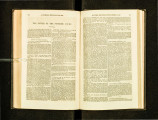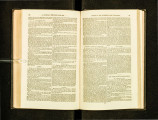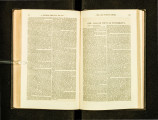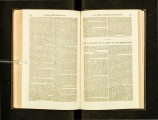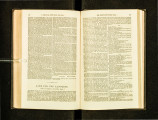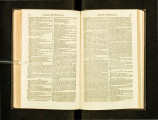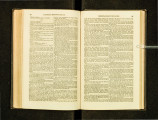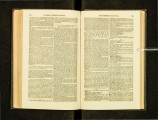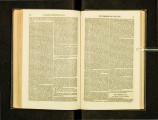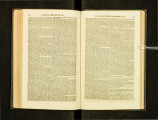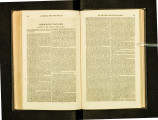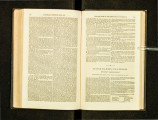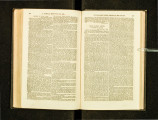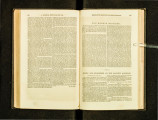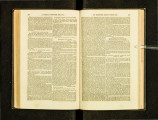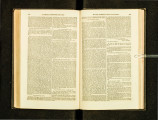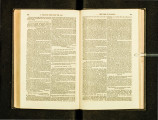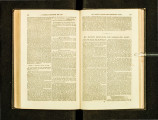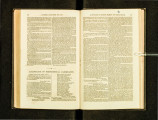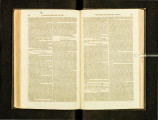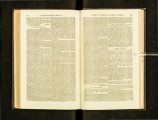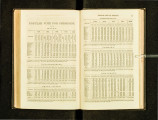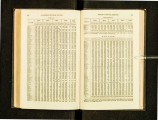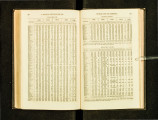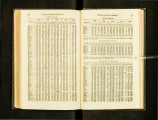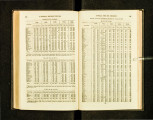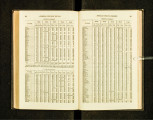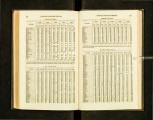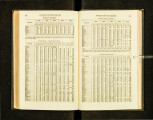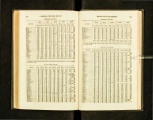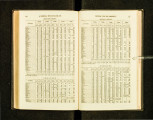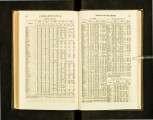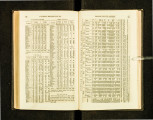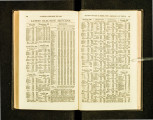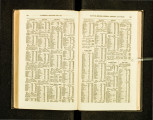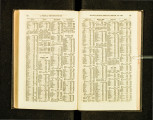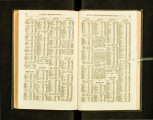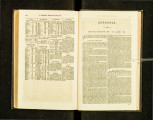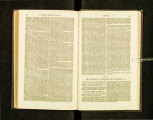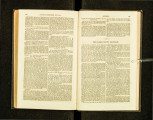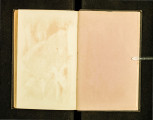| OCR Text |
Show 128 A POLITICAL TEXT-BOOK FOit IS CJ. clincd to go beyond the report of the Comllli::l-~ D.nrs, Edm.und.~:on. En(lli.~h (Tn cll:un) nrr.. tr G sioncrs . trell, Un.\lt • 11 k. 1:1u , Jfum.. ilton 11 .\ urw. ,r .' " '. J',,,' ''r"(,:l ar- · fill 'itli"i A grant is asked from CongrcRs of 4,G50,00U 8~~~w ;;~;/..;1181 r.r.j01~~t;t c'J!.~~~~1 • 11111 '1 ·~lon, llu rtl'''ll ,fr;1.;: f I .1 f . l . I ll ', , . .. . I! ,(Ut/.Ctl' ·' I Ill>'~ M ] ncre o anu ot· mtemn llllprovcmC'nt.s, a so A'~lr\ll, /,_o r e, ~l.u.wr,Y, 111 IY...,.uw ]l! r·o11 • 11/~m~ the swamp land o( the State to be appropriateJ .Jhle.~, Jftl/.,~m, LA ruN 'l'.l\l<)orn:,Sttrlrnh~nl~~~}~,0,.ec~c~('., as a school fund. ~~~;..toefl, 1 ,uyk . . QoAaLr::~_. NwrJun Nll.{/in, 8c·ott (b.~:r).· P . fi. . . . . . , t< es (N. 'a . 1, ~o.t ml~t.Y,, W(Jllton, w111 . ,..,·miliL. W · , t e x d to the Constttut10n 1s n. Bill of ~\lrTn . St<llltoorth te1 en.w111 ro11.r ·~ ,1 •1 ·.N. 11. R . I } . h . d . . . . 'V' ., 1 1"' I , . . '· ' I(J?IW/1 \ lliC• 1g ItS,'" 11C mclu CS a prohtbltiOll of la\'CI'J. ' ''1 ' 1 ' Y, •Ill ·' ifll', ll uodxon . ' '·• fhiR Bill of llirrhts also provides that llO pet':3011 D ·mo<.:rat,~. In Jta/i('H, (:3 from l•'re(• .·lal(!S) 55 0 < AmcricaiiM In~" Ill (;I I'::! ('dl f. 'I ' . . . shall be incompcteut to testify on account of ' ~ ' · · ' ' 10111 • :we L.llt·~), 18 his religious belief. Total, . . . . . 73 By a provision of tho schedule, this Constitu- PAmw-D n vi 8 ( Tndlana), witi1 Photp11• ~:on was submitted to n popular vote on the Sherman with II~ ~~·~·~ of Md first 1'uesday in October, which resulted in its \\'l~de with Peyton. ' · 'fi · b h Sorlll'H with J.1/('('!11y (N. Y. ) rat1 cation y t c people by a majority of some \'au Wyck with Underwood. four thousand. The Territorial election iu Burroug-hs with De)rn·n etttJ. N ovcmber attracted but little interest from the An!'tm.. T. NPAJHrct>-l)av·i~ ( l\l i:~.) Lmt<lrum .M; tl general expectation of the admission of the ~tate under the new Constitution. The Rcpubhcans, however, succeeded iu clectin(J' their delegn.te to Congress and a mnjority 0 of the Legislature. 'l'he fir t State Election under this Consr.itution was held December 6 1859 and resulted in the election of Charles 'Robin'son (Rep.) as Governor by 2513 mnjority. Martin F. Conway (R.ep.) for Co~1gress by 2107 mnjority, and the ent11·e Rcpubhcan ticket for Stu.te oJfiect·s by majorities ranging from 2000 to 2 500 also a Legislature which was Republican' in 'both branches by very dcciucd majorities. f!'eb. 15-~r. Grow introduced in the Ilou:'lc, a. .b'll.t.o adm1t Kansas under the 'Vyandot Conttltut! On. Referred to Committee on 'l'en·itorie ·, which (March. 29th) reported (majority) tJ1rougl.1 Mr. Grow m fu.vor of admission. Ap~tl1l.-Mr. Grow demanded the Previous QuestiOn on the passage of the Bill which was seconded, aud the main question order<'<l. Mr. Barksdale, demanded the Y cas auJ N uy8 -ordered. The question was then taken and decided in th c affirmative : Y cas, 134: ; Nay~, 73, as follows : Y1u~l\Iessrs. Chas. F. Adams, Ad rain Aldrich .Allen, Alley, Ashley, lltLbbitt, Bar·r Barrett Hc:11e' ~~n~l~am, BI:1;ir (Pa.), Dlakc, Drayton,' Dmoos, H~ffint~n' tu ch, Durlingamc, Durnhnm, lluttertleld C·unpbeiJ' Carey, Carter, Oase, H o r a c c F. C 1 a. r k Cl~rk u Cocl ' mne, John GochJ•r:ne, Colfax, Conkling, Ooo;Jer, Corwh~Oovo~ c, 000, CurtJ.S, Dawes, Delano, l>ueiJ Dunn Ed er' i?n, Ed;trds, Elliot, Ely, ETHKRIDOE, l<'arns'worth 'l<'enton - erry, orence. l!'oster, Fouke, Irrauk, French' Oooch' Grow, Gurley, Hale, Ha.ll, U as k 1 n Helmlek '11 1 c k' ~sa ~~;:::rJ~~~m~n, llqwward (Ohio), Humphry, Hutch: K • • , rtLUCI.S . K ellogg, \Vllliam Kdlog euyon, Kilgore, l<illingcr, Larrabee, De Wltt C Ll''lc~' t eclJiO(lf.!-n, I.on~neckcr, Loomis, J.ovcjoy Marsto~ ( 'iw ,' . ~rtti:Jii Jllc leJ'Mtnd, McKean, Mcknight, M'cl.'hc~~ ~~n, 1 mil ontrtomery, .Moorehead, Morrill, EdiVard J oy p orr s, 8aac N. Jforn8, .Morse Nibtack Nixon Or ~llmer, Pendleton, Perry, Pettit, Porter Pott~r i)ottri~' llice, R i g g s, Chrtstopher Robinson JJme& 0. ' Rob . . ' ~n, Royce, S c 11 ,., art z, Scranton' Sedgwick. Sp Y~ g, Spinner, Stanton, Stevens Wm. Stewart Sto'ut s~u ~~ ~~ll T~J?a~, 'l'hayer, 'l'lrenke;, 'l.'orupldns, T~aln 'l'~lm~~e a1 ~(! am, Vandever, Verree Waldron' w It ' C. C. Washburn, E. D. Washburne, Is~acl Washb~rn aWon, &rt:.R, Wells, Wilson, Windom Wood Woodruii ' .un- R epub li cans, in Roman ' ' • Democrat.s (from l•'rec ltn.te;. ), ·In 'Ita.li~e · • lOB Antl-I.ccompton Democrats, Roman epac'ed 22 Americans, in s.\IALL c.u·~ ' • • 6 , . • • • • . . 8 (\' n. ), A m1 ki3l. • , ar n, . Senate., Fib 21~t .. - ~fr. Rt.•w:ml intro!lncccl a htll for the ltdtnl~:4tOn of Kans:ts under the 'Vyandotte Cnnstitul ion. . On t~ t e !5th June, this hill hPing under con· !ll d l' 1':\ t10 II, 1\fr Wigfall, or Tex, explained hiH views. ITe t!eclarerl Jrc would not v ot~ for the a.d•ni~~:o n of thiR 80• cal~ed, talc, uuth•t· any crrcumgiancel!. Jl e objected to thc u· !110ral _ch<~m ct cr, and was n ot. willing 'J'e:~.a~ should assocra te w1th such a Bt.atc. 1\t;. G.reen~'tl n.meJHimcnt, lo change the hountlarv (takrng m l'1l;e'R Peak), was cli8cnsscd hy ~lr Wade who ~aid the e!l'ect of the uu11mdm en t 11 oul;l be to defeal the brll. 1\lr. Hunter '!loved to postpone the suhjccl and take up the Army btll. ' Mr. Trumbt~ll opposed the motion li e should kec1 the Kansas brll before the • cnnl c ti ll il wa~ Onnllv ds· PO.\CCI o.f. It \~as more important. than the nppi·opri· ~uou h llq, wlttc.h npp(':l.l'ed to he k(•pt hack ln Ollie•· to Interrupt other llllJIOI'tnnt hu~ in es.;. Mr. l-iewa li llopl'ci I he r"icnrf, of Kan~as would let a vole be taken, so that the . cSJIOn"ihi li i,\' Jlligilt .ic where It belon gc<l. r 1'he vote wns tnkcn by yc:t~ nntl "" 1 ~, and n"~ulll•cl, ·Y ea~, l32; NILY;q• 27. Jt. was 11. !:llrie~ !•« 1'1,1' votl·, c:t<CJ!I that l\I e~s r~ . luj:rh (Dem., Ohio) a :11l Latham (Dc1u. Cal.) voted ~· ith the Hepuhl.cans nol. to J11lSI(H>Ill'. Mr: Kennedy (::;. Aut., l\lcl) voted w1th the Democrat& M esRr~. Crit:.cndcn (. '. Am, Ky.), Dou gla ~, Clay, (Dern. Ala.), and ~r chol:<on (Dem., 'l'cnn) we . c ab:;cnt. Mcssn. Douglas ancl Clav WC"C Jl:li. eel s I . ocO t le li!Otiou to postpone, and take ll)l the Army bill prevailt•d. Mr. 'l'ruml!ull called att.entio n to the fact that the Scr.1at.or from. Pe nnlly ln utia ( lliglcr) desired to postpone the 1\an sn~ h1ll hec1L11.~e the ~en ak w <t~ not full. 1'1re vote ~howecl that Rixty vote:-~ had h c•en ra t, with two paired ~!T, llhowlng the full est vote of t.he Rcss!on. He Ratd the effect. or the vote ju~t. taken was equivn· l ~11 t t~ the d efeat of the K <~nsa~ hill. ancl the Senator fr om 1 en.ns.vlvanla n•ust hn vc known the e!l'ect of his vote. Mr. Wrgfall tle:li rcd to call a.ttcnllon to the fact that lf.•e House ha.cl once defeated the Al'lny l1lll, lJecause II d~d not want the nm1y used :ti(:Linst t he Dlack Itepubll· c.u1 thieves aud mnrdcrcrM in Kansa!l. June ?.-'Mr·. \\rlld l', or Ohio, IIIOV!.!U to t rtke up the killll'a~ hill, whi ch wa~ lost-as follows: YKAB- 1\Icssrs. Anthony, Bigler, Dingham, Cameron, ~handl er, Clnrk, Collamcr. Dixon, Doolittle, Durkee, I>ess e n~ cu , Foot, Foster, Grimes, Hale, Ha mlin, Harlan, King, I ugh, ~ewnrcl, Simmons Sumner Ten J<;yck. Trumbull, Wade, Wilkinson, Wilso~, ltepul/ 1 Jicans '21>; Demo· crats, (Digler nnd Pugh) 2- 27. ' NAYS- Messrs. Dayard nenjnrnln Dragg Bright, grown, Chesnut, Ciingmdn, Davis, }:itch, Jt'ltzpi\trlck, rcene, Gwln, Ilnmmond Ilerophill Hunter Iverson, Johnson, (Tenn.) Lane, J,at.ham Mnllo'ry Muso~ Nicholson, Pearce, Polk, Powell, !lice, ·~ebn.stla.~ t:'lldeli, Thom· son, Toombs, Wigfall, Yulec.-32. [All Democrats.) !tlr. Douglas wa..q paired with Mr. Clay; Cnttenden (Am.), with Johnson, of Ark., Ken· ncdy and Sttulsbmy ahscnt. . S~ both llouscs adjourned aud lrft Kansas stlll m the c-ondition of a Tcnitory. TriE NEBRASI{A DOO'l.,BINE .um T liE DRED SCOTT DECISION REVIEWED. --· ... ·-- SPEEOII OF TIIE liON. ABRAIIAM LINCOLN, At Sp1·ingficld, Ill., June 11, 1858. (Th. followin)t ~pt•t•ch WI\!; ddh·cred 1\l Sprln~fil'ld, m. 1\t the clo~e of tlH· 1\t'(l\t hlltan Sln.l<' Convention hC'ld nt 1hnt Urne and pln<·c nud hy which Convl'nllon Mr. Lincoln bad been named n~ 'thl'ir c~lnd lli,Llc for U. S. !:)cnulor.] MR. Prn:!'rDKNT, AND G t.'NTI.EMI'N o•· THE CoNVKNTION : It we could frrst know where we arc, and wllilhcr we are tending, wt could bet.tcr judge what to do, and how to doit. We are now far into the fiflh yenr,~;ince a policy was iuiliatcd wii_ the avowed object, and cou!idcnt promise, of putting an end to Slavery agitation. Under the operation of that policy, that agitutiou h n.'l not only not Ct lL~ed, l>ut has constantly augmented. In my opiuion, it will not <·cal!c, until a crisis shall have been reached and pa!lscu. " A hous, di vltled ag:dust itself cannot lllnud." I. believe this government. cannot endure perrnam:nlly ltalf slave and half free. I do not expect the Cu.on to be tl lssolve<l-1 do not expect the house to fall-bllt 1 tlo expect it will cease to be divided. lL will l>ecollle all one thiug, or all the other. Bither tire opponculs o f ~ Ia very will arrest the fu rther Sf)I'Cad or it, and place it where the public miud shall rest in the belief that it is in tl..e course of ultimate extinction; or Its advocates will pn::.h It forward, till it shall become alike lawful In all tllc States, old us well as new-North as well as South. Have we no tendency to the lat ter condition? Let any oue who doubt..'>, carefully contemplate that now almost complete leKal combination-piece or ma.chiuery, so to speak-compounded of the Nebraska doctrine, and the Urcd ~cott Deci~ion. Let him consider not ouly what work the machinery ls o.<la1)ted to do, and how wdl a dapted; !.Jut also, let him study the hbtory of it~ cou>.t ruction, and trace, If he ctLn, or rather fail, if he can, to trace the evidence or deslj.;n, a u<! cone~ ~ of action, among its chi ef architccUi, from the begmnlng The new year of 1S5t found 8l;lvery excluded from more than h:tlf thc 't<Ltc::~ by SLate Constitutions, and from most of the national territory l.Jy Congressional Jlroliibition. Four days l<ttcr, commenced the struggle which ended in r('pealing that Congressional prohibition. This opened all tile national territory to Slavery, and was the tlr:!t point ~ained. llut, 80 r:~r, Cougrci'S only had a.cled: and an indorsement by the people, real o r apparent, was indispensable, to save the voint already gained, and give chance for more. This necessity h ~ul not been overlooked; but had been provitlccl for, as well as might be, in the notable argument of "squatter sovereignty ' otherwise called ' 'sacred ti!)ht of ~elf-government," ~·hich latter phrase, though exprcsbi ve of the only rightful basis of any government, was so perverted in this attempted use or it as to amount to jn t this: 'l'h ~Lt if any 011e mnn choose to t!o~Ja,·e aYLoth er, no tllil'd man shall he allowed to ObJect. 'l'h:Lt argument was incorporated into the Nebr~ ska. bill itt-~elf, in the langua.ge which follows: "It bemg the true intent an(l meaning or this act not to lc~l!late Slavery into any 'rerrltory or !=!tate, nor to exclude it therefrom; but to le!Lve the people thereof perrecLJy free to form and regulate thelr domestic institutions In their· own wa.y subject only to the Constitution or the United ~tates. ,? Then opened the roar of loose decla01atlon in favor of ''Squatter Sovereignty" 1\nd 44 sacred dght of sclf-«<vernment. ' 1 .. But," sald 1 opposition memllers, "let us amend the bll111o as to expreslfly decla.~ e tba~ the people ot the Territory may exclude Slavery." "Not we," said the friends or the measure, and down they voted the amendment. While the Nebraska bill was pasl'lng through Congress n law c:a~M involving the question of n ue~ro's fr •edom' by retl.Son or h is owucr having volunt :Liily to. ken hi•~ first into a. J..'ree StrLle a.nd then into a Territory covered by the Congressional prohiultlon, and held him as a slave for a loug time in each, was Jlllssing through the United Sta tes Circui~ Court for the District of Missouri ; and both N!'br;\ska bill aud Ja.w suit were brougilt to a decision In the Stl.me month of 1\lny, 185-t 'J'he negro's ll(lme was "Drcd Scott," which name now deRigna. tes the d ecision finally made in the C!LSe. llefore the then next !'residential Election, the Jaw case came to and w!LB argued in, the Supreme Court of the United States ; but the decision or it was deferred until after the election. Still, before the election , c:euator Trumhull, on Ute floor oC the Senate, requested the les.ding advocate of the Nebrask:L hill to state lti>~ opini•Jt' whet her the people of a. Territory can consUtutionally exclude Slavery from their Ilntltll ; and tire latter answers : "'l'hat is a. question for the Supreme Court." The election came. Mr. HuchanrLn wal:! elected, and tho inclor ement, such as It w:L.'I, secured. That was the second point gained. 'J'he indonrement, however, fell short of :t clear popul:tr majority by IIC!lrly four h undred thousand votes, aud so, perhaps, was not overwhelmingly r cliaule and satisfactory. 'l'he outgoing President, In his laRt annual message, as impressively as po88ible, echoed b:Lck upon the people the weight and authority or the Indorsement. '!'Ire Supreme Court met again; did not announce their decision, but (n·dcred a re-argument. 'l'he Presidential inauguration came, and still u• decision of the court; but the incoming l.'n.>sideot ln his inaugural addre<~s, fervently exhorted the people t.o abide by the fortbcomiug decision, whatever it mlgh' be. 'l'hen in a few days, carne the decision. The reputed author or the Nehraska. bill fm<la an early occasion to make as pcech at this capital, indorsIng the ])red Scott decision, and vehemently denou ncing all opposition to it. 'l'he new President, too, selze:t the early occasion of the Hilllruan letter to indorse and strongly construe that decision, and to express hl'> ;wtonishment that any di!fel'en~ view had ever lJcen entertained! At length a squabble springs up between the P reslden' and the a.uthor of the Nebraska. bill, on the mere question or jac:t, whether the Lecompton Constitution wii.B or was not, in any just sense, made t>y the people of Kansas; and in that quarrel the latt.er declares that. all h«t wants iB a fair vote for the lteople, and that he cares not whether Slavery be voted dOW1t or voted up. I do not understand his declaration that he cares not. whether Slavery be voted down or voted up, to be Intended by him other than a.s an apt definition of the policy be would impress upon the JlUbllc mind-the principle for which he declares he has suffered so much, and is ready to sulier to the end. And well may he cling to tha~ principle. If he h!LB any parental feeling, well may he cling to it. That principle is the only shred left or hla original Nebraska doctrine. Under the Dred Scott decision "squatter sovereignty" squatted out or exIstence tumbled down like temporary scatrolding- Uke the m~ld at the foundry eerved through one blast &nd fell back luto loose sand- helped to carry an electioll, and then was kicked to the winds. lll.s late joint etrugut• with the RepubLicans, agalllit the Lecompton Cou- •· 12T |



